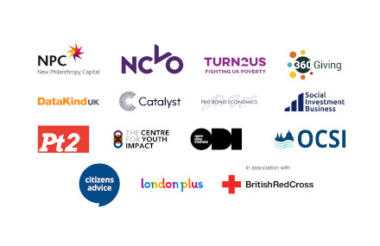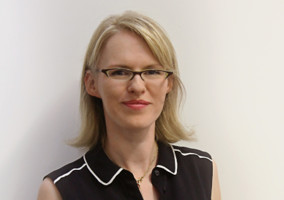Charities have set out plans for data collective that would join up information about the sector to help people make better informed decisions.
Fifteen organisations, including The Catalyst, NCVO and 360Giving, have signed-up to the idea that would entail conscious and coordinated effort by a group of those with expertise in gathering and using data in the charity sector to make it easier for others to use.
They say the sector must better understand the current and emerging needs of individuals and communities during the crisis, what services are being delivered to help meet those needs, whether those services are effective and how the lockdown has financially impacted people and the organisations that serve them.
A blog published this morning by the collective says: “These are fundamental questions that many different organisations are trying to answer. But the information we need to do this is held by different people, in different places and can’t be easily joined up. This makes it hard to act on.”
It adds: “This lack of cohesion is a serious issue. It leads to a lack of knowledge. And if we don't know enough about the problems we're trying to solve, or how we're trying to solve them, it will be difficult for charities to adequately serve the needs of our society.”
The collective aims to help organisations that might not have the capacity and resources to do the research themselves.
Rachel Rank, a consultant at CAST and organiser of the project, said: “We felt as a collective of organisations that care passionately about data that we could offer our support to the wider sector, who often want this information not as raw quantitative or qualitative data, but information that they can act on.”
Why now?
Those involved argue that better data about charities will lead to better understanding and therefore better decisions when it comes to responding to the impact of Covid-19.
Rank said: “Lots of things have been amplified through the pandemic, and one of those things is data. This is the ultimate test for us. If you want to understand vulnerability and the groups most affected during this crisis and think about how as organisations we can work better to support others to do their work, then this is a good opportunity.”
Who is part of the initiative?
The collective is inviting organisations that are collecting and analysing good quality data to join. It asks that they make their data publicly available and to explore how they can combine their efforts with others.
By being part of the data collective, organisations can get pro bono advice on how to collect and curate data so it can be used and shared ethically; and other members of the collective will be able to signpost to their work, knowing that there is a dedicated contact point that can answer questions on how to use the data they hold.
The group wants to join up complementary efforts to understand the needs of specific sectors and groups and to start working together on new collaborative datasets about how the sector is responding to Covid-19.
Funding
The collective is not currently seeking funding, but possibly will longer-term depending on the appetite. Rank said it needs a concerted effort across the sector, and that a longer-term initiative would likely need funding.
She added that the programme was essentially an infrastructure initiative, and although it is not “the glamorous side” of work it needs to be focused on.
Full list of signatories:
-
British Red Cross
-
Centre for Youth Impact
-
Citizens Advice Bureau
-
Catalyst
-
DataKind UK
-
London Plus
-
NCVO
-
New Philanthropy Capital
-
Open Data Institute
-
OCSI
-
Pro Bono Economics
-
Pt2
-
Royal Statistical Society
-
SIB Group
-
Turn2us
-
360Giving
Rank said: “This is not an exclusive club. It is about helping organisations who know what beneficiaries need or what their charities struggle with and helping to share that information so others can use it for decision making.”
She added: “The door is very much open for others.”
Related articles
Rachel Rank: Politicians have pledged to support communities, but still don’t understand the voluntary sector
Rachel Rank from 360Giving urges the next government to make better use of data to meet manifesto commitments about supporting communities.












